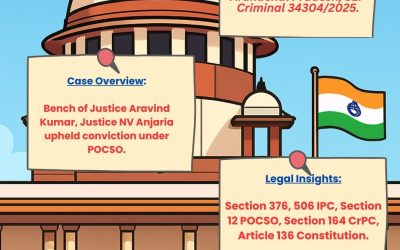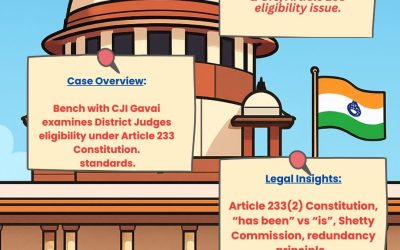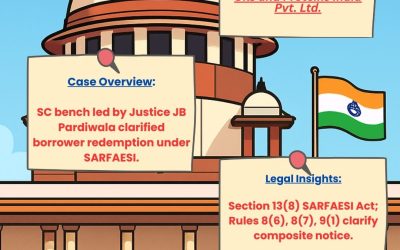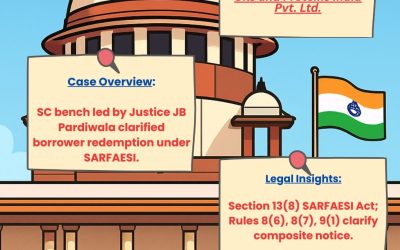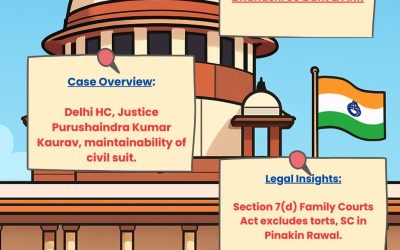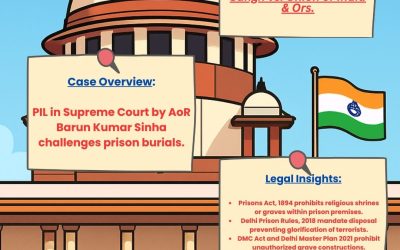
Supreme Court upholds denial of anticipatory bail in corruption case, reinforcing judicial integrity and accountability in serious offenses.
SUPREME COURT REFUSES ANTICIPATORY BAIL IN CORRUPTION CASE
Headline
Supreme Court refuses anticipatory bail in corruption case and stated courts shouldn’t hesitate to refuse liberty for a corruption-free society.
Summary
The Supreme Court refused Anticipatory Bail to a public servant who was accused of illegal gratification, stressing that courts must be cautious in granting bail in cases of corruption. The bench stated that bail should only be granted in exceptional cases where false implication is evident.
Key Facts
- Case Name: Devinder Kumar Bansal vs. State of Punjab
- Bench: Justice JB Pardiwala and Justice R Mahadevan
- The accused, an Audit Inspector, demanded illegal gratification for an audit.
- Co-accused was caught with an audio recording corroborating the demand.
- The Punjab & Haryana High Court refused Anticipatory Bail, and this decision was upheld by the Supreme Court .
Legal Insights
The Supreme Court reiterated that Anticipatory Bail is not a fundamental right U/A 21 of Indian Constitution and can be refused for serious offenses like corruption under the Prevention of Corruption Act. Stating Section 438 of Criminal Procedure Code(CrPC), the Supreme Court held that bail is just a statutory privilege and not an absolute right.
Impact
This ruling of the Supreme Court stressed on strict judicial scrutiny in corruption cases by demotivating misuse of provisions of bail.
Why It Matters
By prioritizing a corruption-free society, the Supreme Court of India strengthens public trust in judicial integrity and accountability.
Source


